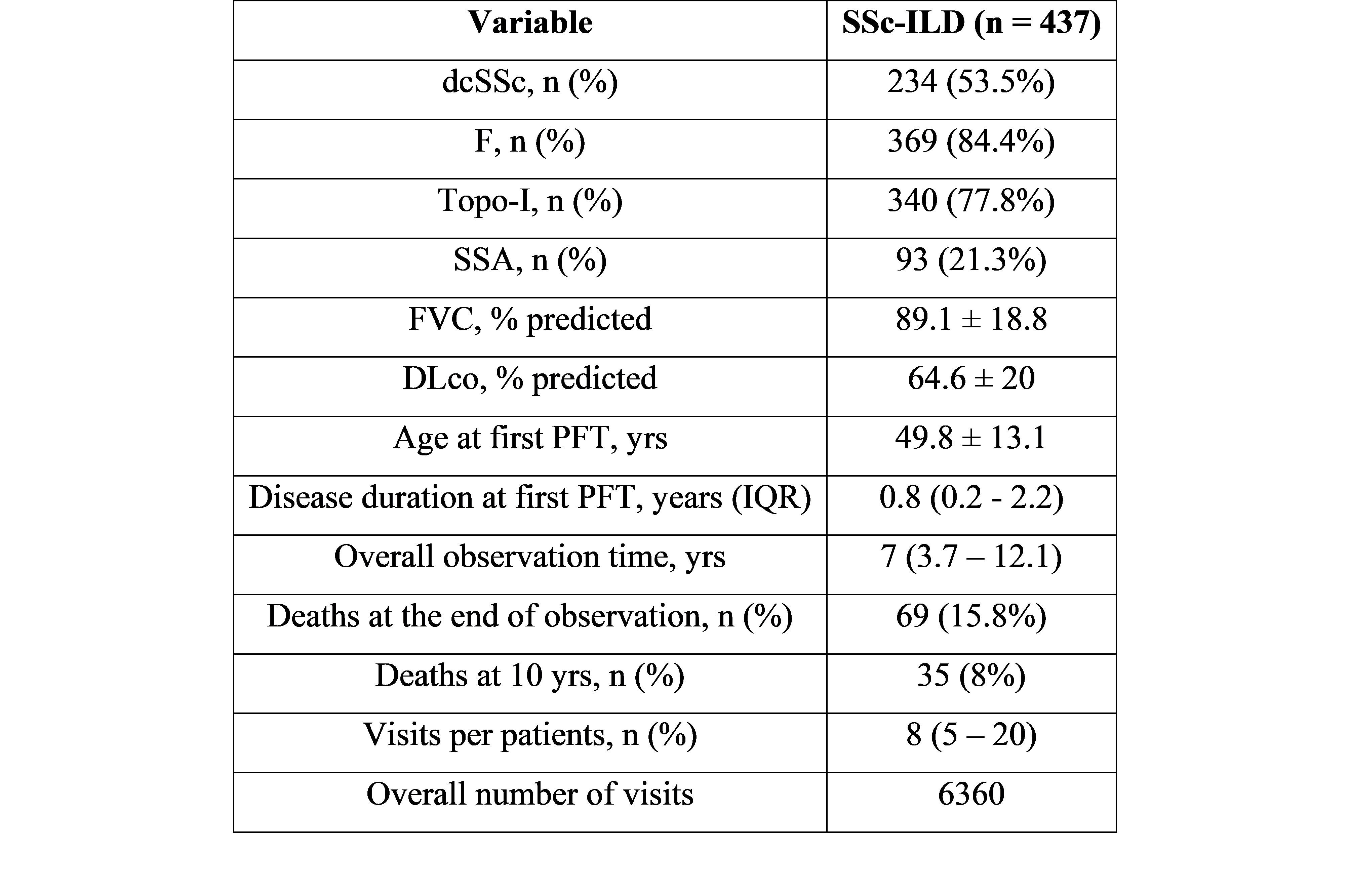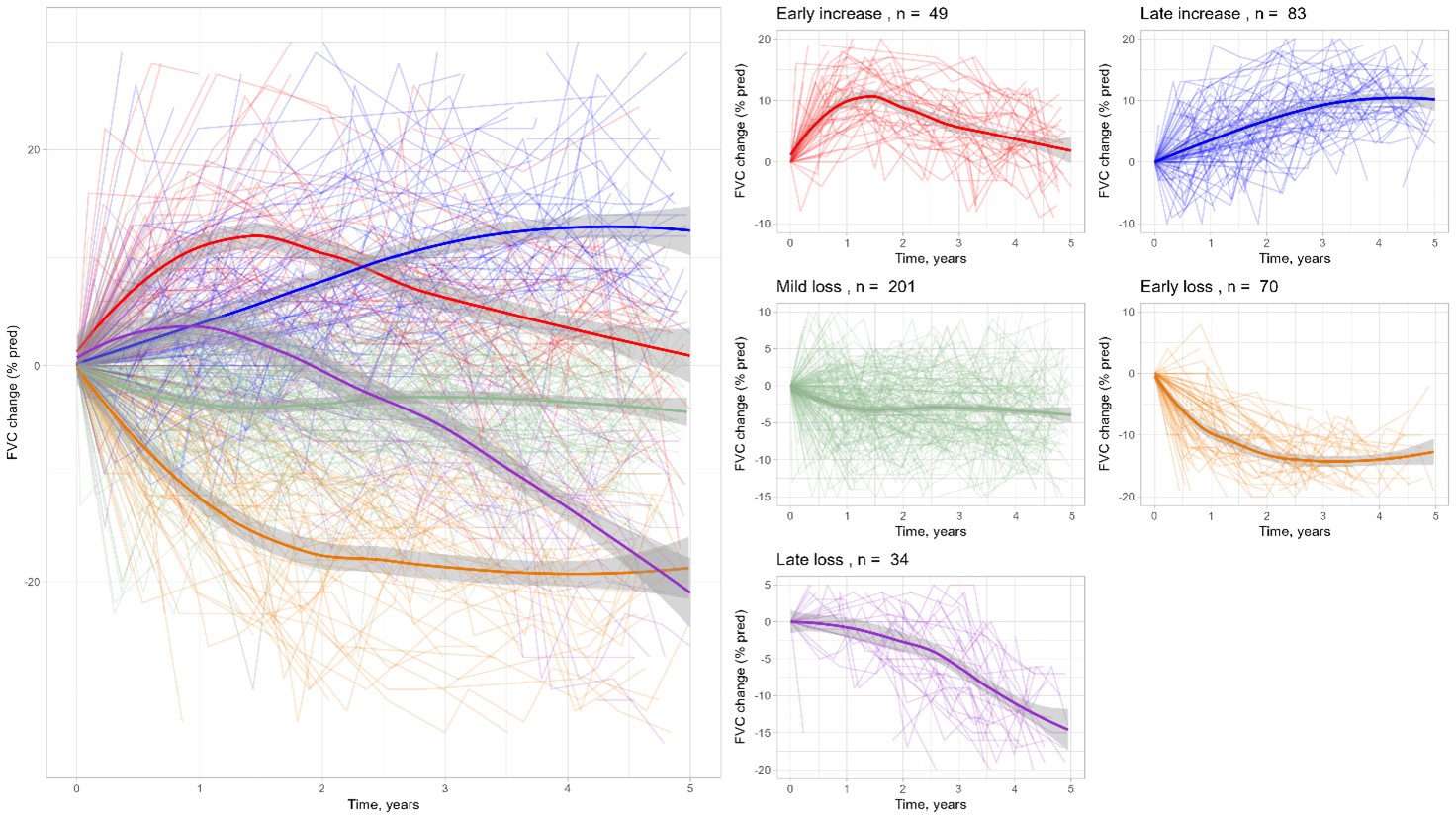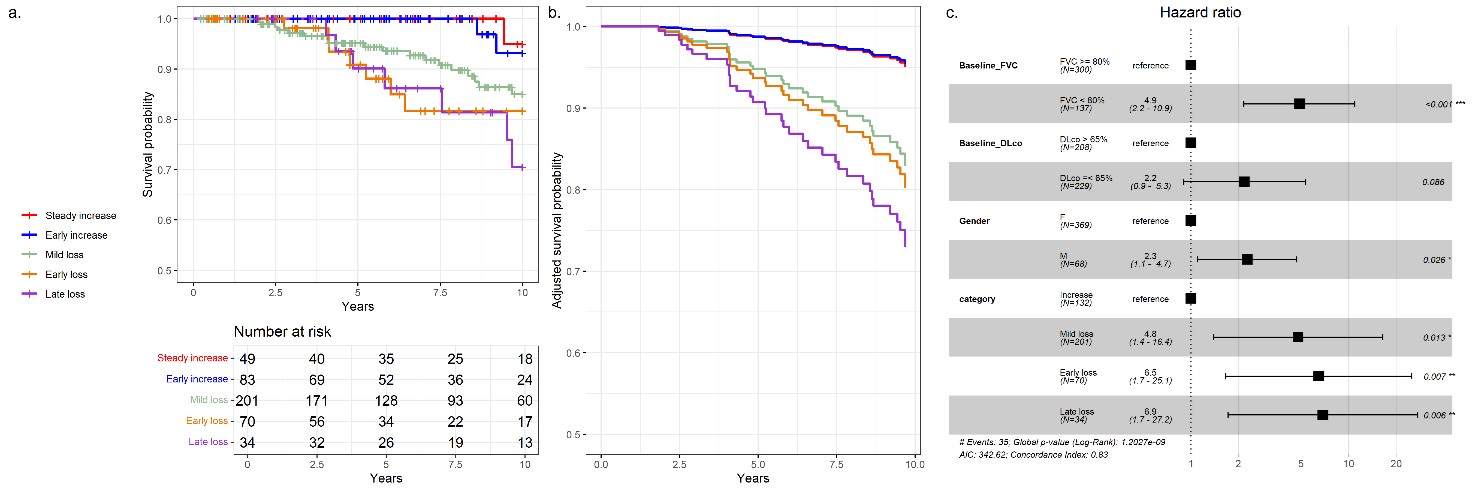Session Information
Session Type: Poster Session A
Session Time: 10:30AM-12:30PM
Background/Purpose: Understanding the trajectory of disease progression in SSc-ILD is crucial for effective patient management and prognostication. Trajectory modeling offers a novel approach to deciphering the diverse progression patterns seen in SSc-ILD, providing insights into prognosis and guiding therapeutic interventions.
Methods: SSc-ILD patients from 7 Italian tertiary centers who met the following criteria were included: a) diagnosis of SSc (ACR/EULAR criteria); b) disease duration ≤5 years at the time of the first PFT; c) absence of ACA; d) evidence of ILD on HRCT. A prospective-retrospective data collection was performed, and trajectories of disease progression, as determined by 5-year longitudinal changes in FVC (absolute difference from baseline predicted values), were evaluated using growth mixture modeling implemented in the lcmm package in R. Latent classes were linked to 10-year survival estimates, considering relevant baseline covariates via Cox regression models (respiratory-related causes of death).
Results: A total of 437 SSc-ILD patients with a median disease duration of 0.8 (0.2-2.2) years were included (see Table). Trajectory analysis revealed 5 patterns of disease progression (latent classes), as illustrated in Figure 1. The majority of patients exhibited a mild decline in FVC values (n=201), two patient groups showed an increase (n=49 and n=8), while two groups demonstrated early (n=70) or late FVC loss (n=34). None of the baseline variables could predict latent class assignment. Survival analysis demonstrated that patients with a deterioration in lung function had worse 10-year survival estimates (see Figure 2a). When adjusting for gender, baseline FVC, or DLco (dichotomized at the most discriminative threshold), a substantial increase in the risk of death was observed for patients with declining lung function compared to those with stable or improving function (see Figures 2a and 2b).
Conclusion: We provide evidence of the relevance of trajectory modeling in elucidating the progression patterns of SSc-ILD and their prognostic significance. By identifying distinct patient subgroups with different functional trajectories, we provide valuable insights into disease evolution and prognosis. Focusing on an enriched population of SSc-ILD at risk for progression, our results may be relevant for enhancing statistical power and generalizability in clinical trial design, as well as facilitating the development of more targeted and effective therapeutic interventions for SSc-ILD.
To cite this abstract in AMA style:
Beretta L, Santaniello A, Bosello S, De Lorenzis E, Natalello G, Del Papa N, Cavalli S, Benfaremo D, De Luca G, Campochiaro C, Cavagna L, Codullo V, Bonomi F, Montanelli g, Severino A, Caronni M, Vigone B, Bellando-Randone S, Montecucco C, Matucci-Cerinic M, Dagna L, Moroncini G, Caporali R, Bellocchi C. Patterns of Disease Progression in Early Systemic Sclerosis Patients with Interstitial Lung Disease [abstract]. Arthritis Rheumatol. 2024; 76 (suppl 9). https://acrabstracts.org/abstract/patterns-of-disease-progression-in-early-systemic-sclerosis-patients-with-interstitial-lung-disease/. Accessed .« Back to ACR Convergence 2024
ACR Meeting Abstracts - https://acrabstracts.org/abstract/patterns-of-disease-progression-in-early-systemic-sclerosis-patients-with-interstitial-lung-disease/



